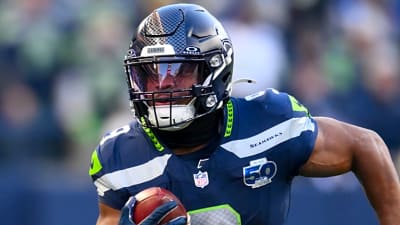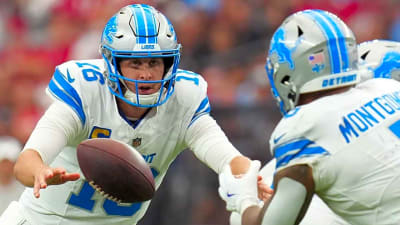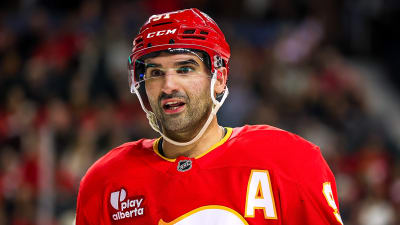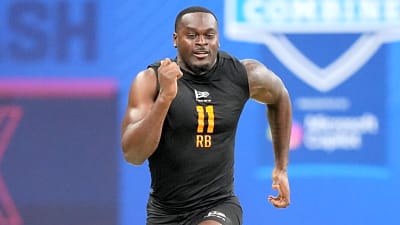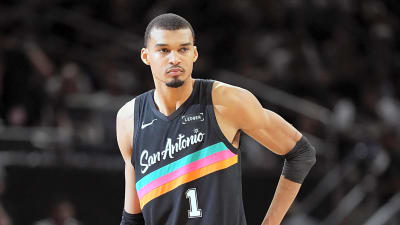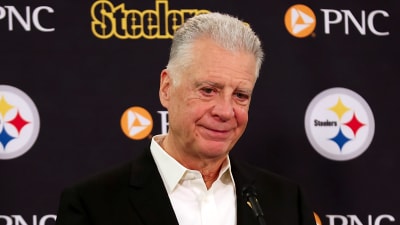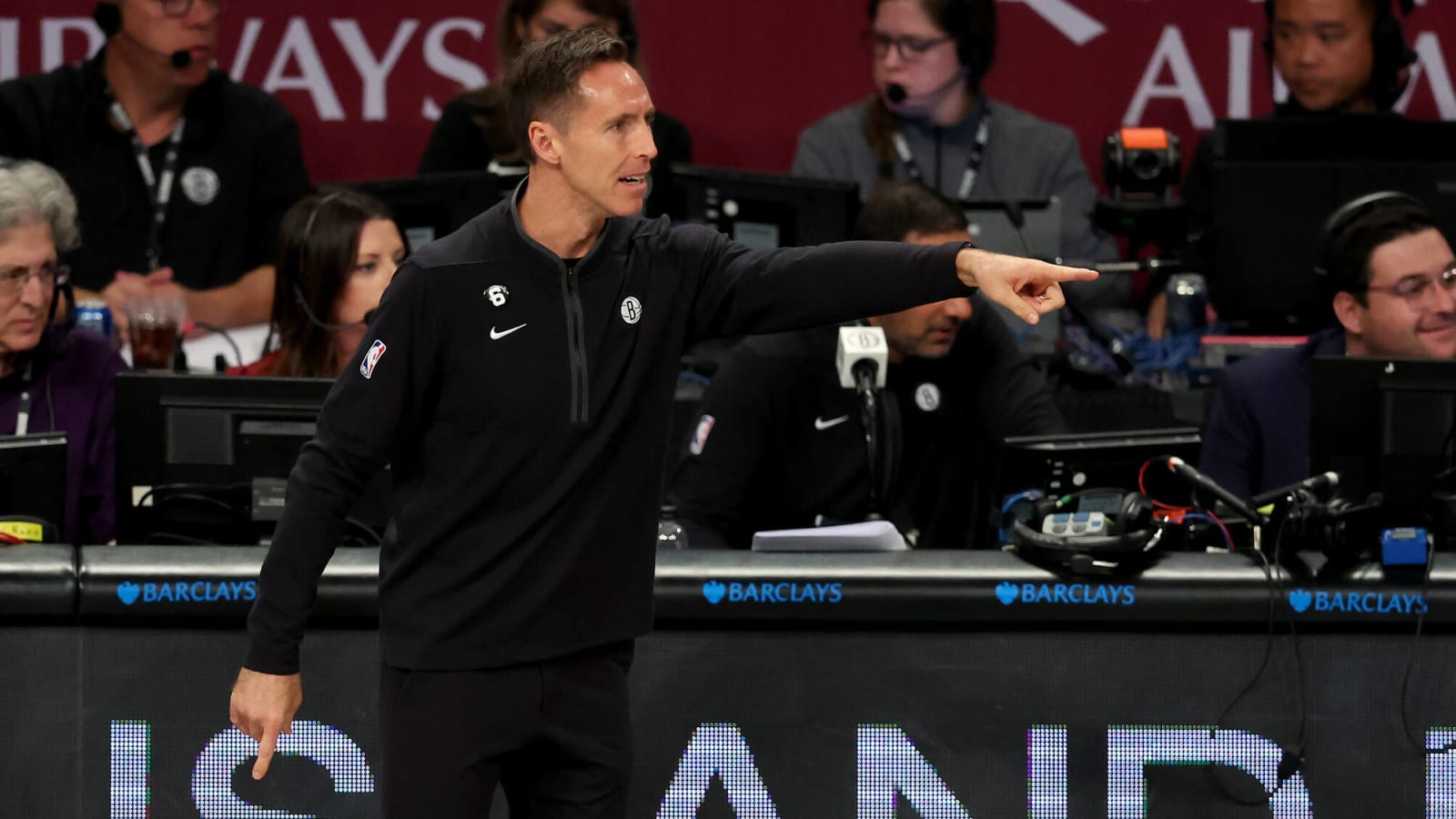
Over the span of 2011 to 2023, the Phoenix Suns have witnessed a dynamic evolution in their roster, featuring a mix of historical greats and emerging stars. This period marked the transition from the Steve Nash and Amar'e Stoudemire era, where the Suns were a perennial playoff contender, to a rebuilding phase that eventually saw the emergence of Devin Booker as a cornerstone player.
As the team navigated through various rebuilding phases, the acquisition of talents like Deandre Ayton, Mikal Bridges, and the emergence of Devin Booker as an elite scorer brought a renewed sense of hope before stars Kevin Durant and Bradley Beal formed a Big Three in Phoenix. Here are the best Phoenix Suns from 2011 until 2023.
2011: Steve Nash
Stats: 14.7 PPG, 3.5 RPG, 11.4 APG, 0.6 SPG, 0.1 BPG
Achievements And Awards: Assist Champion
In the 2011 season, Steve Nash continued to showcase his exceptional playmaking skills and basketball IQ as the maestro of the Phoenix Suns. Averaging an impressive 14.7 points, 3.5 rebounds, and a league-leading 11.4 assists per game, Nash proved to be the heart and soul of the team. His remarkable ability to distribute the ball and create scoring opportunities for his teammates was underscored by earning the Assist Champion title.
Despite the Suns missing the playoffs that season, Nash's impact was evident in key moments, including memorable performances against top-tier opponents. Notably, his 20-assist masterpiece against the Los Angeles Lakers and a 19-assist game against the Minnesota Timberwolves highlighted his playmaking brilliance during the season. These standout moments not only solidified Nash's reputation as one of the premier point guards in the league but also demonstrated his enduring influence on the game, even in the latter stages of his illustrious career.
2012: Steve Nash
Stats: 12.5 PPG, 3.0 RPG, 10.7 APG, 0.6 SPG, 0.1 BPG
Achievements And Awards: All-Star
In the 2012 season, Steve Nash continued to exhibit his exceptional skills and leadership on the court for the Phoenix Suns. Despite a slight dip in scoring with an average of 12.5 points per game, Nash remained a premier playmaker, tallying 10.7 assists per game. His impact was undeniable, earning him a well-deserved spot in the All-Star Game, a testament to his continued influence in the league despite being 37 years of age and past his prime in terms of athleticism. Nash's ability to orchestrate the offense and create scoring opportunities for his teammates was crucial to the Suns' competitiveness.
Although the team faced challenges in making a playoff run as they only won 33 games in a lockout-shortened season and missed the postseason, Nash's All-Star nod highlighted his enduring excellence and significance in the NBA landscape. Nash would receive praise for being one of the greatest point guards of his era as this would be the final season he would suit up for the Phoenix Suns.
2013: Goran Dragic
Stats: 14.7 PPG, 3.1 RPG, 7.4 APG, 1.6 SPG, 0.3 BPG
Achievements And Awards: N/A
In the 2013 season, the Phoenix Suns experienced a shift in leadership as Goran Dragic assumed a prominent role on the team after Steve Nash left for the Los Angeles Lakers. Averaging 14.7 points and 7.4 assists per game, Dragic showcased his versatility as a scoring playmaker. His defensive prowess was also notable, recording 1.6 steals per game despite not being considered an elite defender at the time.
Despite not garnering any specific awards or achievements, Dragic's impact was pivotal in guiding the Suns through a transitional phase. Key highlights of the season included Dragic's dynamic performances, such as a memorable 32-point outing against the Atlanta Hawks, demonstrating his ability to carry the offensive load. Though the team faced challenges including winning only 25 games and missing the playoffs, Dragic's emergence as a key contributor laid the foundation for his future success on an individual level.
2014: Goran Dragic
Stats: 20.3 PPG, 3.2 RPG, 5.9 APG, 1.4 SPG, 0.3 BPG
Achievements And Awards: All-NBA Third Team Selection, Most Improved Player
In the 2014 season, Goran Dragic elevated his game to new heights, making an indelible mark on the Phoenix Suns' roster. Averaging an impressive 20.3 points and 5.9 assists per game, Dragic not only demonstrated his scoring prowess but also solidified his role as a playmaking force. Dragic was named to the All-NBA Third Team, highlighting his status among the league's elite as he had to carry the Suns throughout the year, winning an impressive 48 games.
Dragic's exceptional improvement and impact did not go unnoticed, as he was also honored with the Most Improved Player award, a testament to his dedication and hard work. Key moments of the season included several standout performances, such as his 40-point career-high explosion against the New Orleans Pelicans, showcasing Dragic's ability to take over games and lead the Suns with newfound confidence and skill.
2015: Eric Bledsoe
Stats: 17.0 PPG, 5.2 RPG, 6.1 APG, 1.6 SPG, 0.6 BPG
Achievements And Awards: N/A
In the 2015 season, Eric Bledsoe took on a prominent role as he played 81 games while combo guard Goran Dragic only appeared in 52 games. Averaging 17.0 points, 5.2 rebounds, and 6.1 assists per game, Bledsoe showcased his well-rounded skills as a dynamic guard. His defensive impact was also notable, registering 1.6 steals and 0.6 blocks per game.
The context of Goran Dragic playing only 52 games in the same season adds an extra layer to Bledsoe's significance, as he stepped up to fill the void and emerged as a key playmaker for the team. While the Suns faced challenges in the competitive Western Conference by missing the playoffs, Bledsoe's all-around performances underscored his importance during this transitional period for the franchise.
2016: Brandon Knight
Stats: 19.6 PPG, 3.9 RPG, 5.1 APG, 1.2 SPG, 0.4 BPG
Achievements And Awards: N/A
Brandon Knight emerged as a key contributor for the Phoenix Suns, showcasing his scoring ability and playmaking skills and having the best season of his career in the 2015-16 campaign. Averaging 19.6 points, 3.9 rebounds, and 5.1 assists per game, Knight demonstrated his versatility as a guard. Knight's scoring prowess was evident throughout the season, as highlighted by several notable games, including a 38-point outburst (55% FG) against the Denver Nuggets.
While the Suns continued to face challenges in the highly competitive Western Conference by winning only 23 games, Knight's offensive firepower and ability to create opportunities for his teammates marked him as a vital asset during this period. This was also Devin Booker’s rookie season and while he made the All-Rookie Team by averaging 13.8 points per game, he would become Phoenix’s best player in the following season.
2017: Devin Booker
Stats: 22.1 PPG, 3.2 RPG, 3.4 APG, 0.9 SPG, 0.3 BPG
Achievements And Awards: N/A
In the 2017 season, Devin Booker firmly established himself as the face of the Phoenix Suns, demonstrating his scoring prowess and emerging as a rising star in the league. Averaging 22.1 points per game, Booker showcased his offensive versatility and ability to take over games. Despite not receiving specific awards, his performances generated significant excitement and optimism for the Suns' future.
Notable moments included Booker's remarkable 70-point game against the Boston Celtics, a historic feat that solidified his status as one of the league's premier young talents as he became the youngest to do so (20 years, 145 days). As the focal point of the team's offense, Booker's scoring outbursts began to define the Suns' identity and there would be hope that the Suns would get back to relevance for the first time since the Steve Nash days.
2018: Devin Booker
Stats: 24.9 PPG, 4.5 RPG, 4.7 APG, 0.9 SPG, 0.3 BPG
Achievements And Awards: Three-Point Contest Champion
Devin Booker continued his ascent as a premier talent in the NBA, solidifying his status as the cornerstone of the Phoenix Suns. Averaging an impressive 24.9 points, 4.5 rebounds, and 4.7 assists per game, Booker showcased his scoring, playmaking, and leadership abilities. Notably, he further etched his name among the league's elite by clinching the Three-Point Contest Championship, displaying his sharpshooting prowess during the All-Star Weekend.
Booker's impact extended beyond individual accolades, as he consistently led the team in scoring and became a focal point of the Suns' offensive schemes. Memorable moments included his 46-point game against the Philadelphia 76ers and a 43-point performance against the Portland Trail Blazers. The problem was that the Suns were still trying to surround Booker with the right pieces, as the team only won 21 games under head coach Earl Watson and Jay Triano.
2019: Devin Booker
Stats: 26.6 PPG, 4.1 RPG, 6.8 APG, 0.9 SPG, 0.2 BPG
Achievements And Awards: N/A
In the 2019 season, Devin Booker continued his remarkable individual growth and solidified his place as one of the league's premier young talents for the Phoenix Suns. Averaging an impressive 26.6 points and 6.8 assists per game, Booker showcased his scoring ability and playmaking skills, further establishing himself as the focal point of the team's offense although the Suns only ranked 23rd in offense and 28th in defense. In many ways, Phoenix was a one-man show led by Booker.
Despite not securing specific awards, Booker's statistical achievements highlighted his well-rounded offense game and growing leadership on the court. The shooting guard had multiple offensive explosions during the season, scoring 59 points against the Utah Jazz, scoring 50 against the Washington Wizards, and having three 40-point games. The scoring potential was there to see, but Booker needed help as the Suns only won 19 games.
2020: Devin Booker
Stats: 26.6 PPG, 4.2 RPG, 6.5 APG, 0.7 SPG, 0.3 BPG
Achievements And Awards: All-Star
In the Covid-shortened 2020 season, Devin Booker continued his stellar performance for the Phoenix Suns even if the playoffs eluded him again. Averaging 26.6 points per game on 48.9% from the field and 35.4% from three, Booker showcased his scoring ability once again. His remarkable contributions did not go unnoticed, earning him a well-deserved spot in the All-Star Game, underscoring his first appearance.
Booker had three 40-point games in the season and 25 games of scoring at least 30 points. The Suns only won 34 games but at least they were getting closer to the .500 mark. Bright spots around Booker included Deandre Ayton (18.2 PPG and 11.5 RPG) and Mikal Bridges (9.1 PPG), players who would ensure a Finals run in the following season. Finally, Booker was getting help on the roster.
2021: Chris Paul
Stats: 16.4 PPG, 4.5 RPG, 8.9 APG, 1.4 SPG, 0.3 BPG
Achievements And Awards: All-Star, All-NBA Second Team Selection
In the 2021 season, the Phoenix Suns made a transformative move by acquiring veteran point guard Chris Paul, whose leadership and playmaking prowess played a pivotal role in the team's resurgence. Averaging 16.4 points, 4.5 rebounds, and 8.9 assists per game, Paul's impact extended beyond the box score, providing invaluable guidance to a young Suns roster. His standout performances earned him a well-deserved spot in the All-Star Game and recognition on the All-NBA Second Team, reflecting his significant contributions to the team's success.
Paul's on-court leadership was instrumental in the Suns' impressive run to the NBA Finals, where they narrowly missed securing the championship. Notable moments included his clutch performances in critical playoff games and his ability to elevate the play of his teammates, particularly Devin Booker and Deandre Ayton. Despite winning the first two games, the Suns dropped the last four against the Milwaukee Bucks but there was a new belief in Phoenix that contending for the NBA championship would become the norm.
2022: Devin Booker
Stats: 26.8 PPG, 5.0 RPG, 4.8 APG, 1.1 SPG, 0.4 BPG
Achievements And Awards: All-Star, All-NBA First Team Selection
The Phoenix Suns continued their excellence in the Western Conference behind Devin Booker and Chris Paul, winning a franchise-record 64 games and ranking 5th in the league in offense. Paul led the NBA in assists per game (10.8) and was still the leader of the team, but Booker was the best player because his scoring was off the charts. He posted 26.8 points per game on 46.6% from the field and 38.3% from three despite being double-teamed often in games.
The Suns were expected to make the NBA Finals again, but ran into the Luka Doncic-led Dallas Mavericks and were defeated in the second round of the playoffs. Despite the disappointing end to the season, it was a season to remember for Suns fans. It would be the final time that Chris Paul, Devin Booker, Deandre Ayton, and Mikal Bridges would be together for a playoff run, however, as major changes would come in the following season.
2023: Devin Booker
Stats: 27.8 PPG, 4.5 RPG, 5.5 APG, 1.0 SPG, 0.3 BPG
Achievements And Awards: N/A
The Suns kept their core together for 59 games, but an incredible trade deadline saw Kevin Durant come to town for a package including Mikal Bridges, Cam Johnson, and multiple first-round picks. With Durant on the team for the final stretch of the season, the Suns ended up with 45 wins as they made it to the second round of the playoffs before falling short against the Denver Nuggets.
Chris Paul only played seven games in the playoffs, missing games due to injury, averaging 12.4 points and 7.4 assists per game. That essentially meant the Suns were a two-man show, as Durant chipped in 29.0 points per game in the playoffs but Booker was the standout performer. The shooting guard averaged 33.7 points per game on 58.5% FG, 50.8% 3-PT FG, and 86.6% FT. No doubt, Booker was the best player on the Suns all year and he would end up with a new teammate for the 2023-24 season: Bradley Beal.
More must-reads:
- Streaking Hornets blow out Celtics, look like East's biggest upset threat
- Maple Leafs shock with high asking price for Nicolas Roy
- The 'NBA 30-point game leaders' quiz
Breaking News
Trending News
Customize Your Newsletter
 +
+
Get the latest news and rumors, customized to your favorite sports and teams. Emailed daily. Always free!

